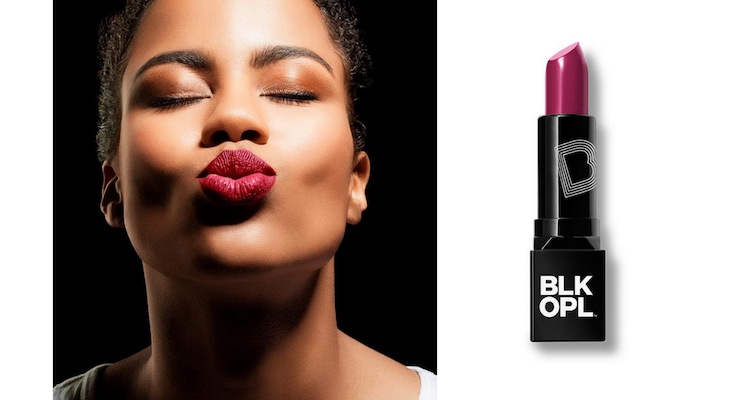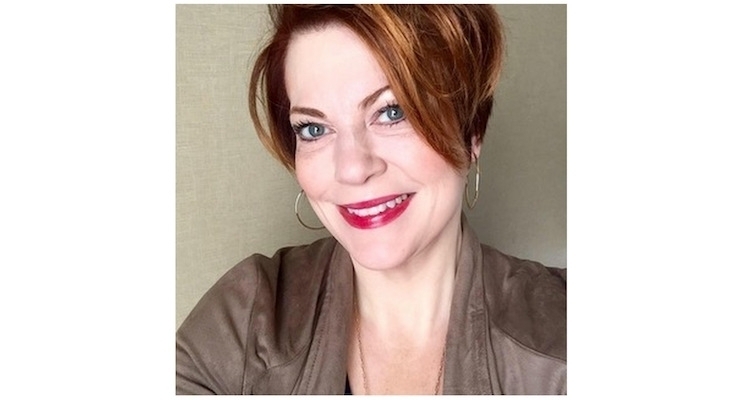Elle Morris, CEO, HMS Design12.21.17
The African consumer goods market has long been a challenge for multinational brands, particularly in the beauty sector.
Some governments, such as Nigeria, had rigorous in-country investment requirements (such as manufacturing plants) before allowing foreign products into their markets. With some African nations now relaxing their traditional hard stances regarding imported goods, this opens a window of opportunity for global beauty brands to expand into Africa.
Maya Brown, chief strategist of Maze Marketing Solutions, LLC and former vice president of marketing for Black Opal Cosmetics has traveled Africa extensively in an effort to understand the consumers, their product needs and the opportunities that exist to bring multi-national brands to Africa.
Photo above, by Black Opal Cosmetics.
According to Brown, many of the barriers that previously existed have been modified or in some cases, even removed to improve economic growth within some African countries. These include:
- Reformed policies tackling anticompetitive practices, which protected local African brands, allowing competitive brands to enter the market.
- Online postings of governmental procedure details, fees, and laws have improved transparency expediting the registration process.
- Investment processes have been consolidated and streamlined thus simplifying user interactions.
What makes African consumers receptive to foreign beauty products now?
According to Brown, Africa is home to the youngest population in the world who are very aware of and heavily influenced by modern trends in grooming, fashion and western culture.
The population is globally connected, has a rising middle class, is highly educated, and is the fastest urbanizing continent. The increased usage of the Internet and social media as well as the “glamorization” of African celebrities such as Oscar Winner Lupita Nyong’o have helped drive aspiration of multinational beauty brands.
Africans are attracted to the quality, prestige and strong social cachet that global brands offer and they have the increased buying power to purchase them. Also, men in Africa are becoming more evolved with their grooming habits and it has become one of the fastest growing sectors in East Africa’s beauty and personal care industry.
What cultural insights do brands need to be aware of before entering the market?
Similar to South Americans, Africans are not monolithic. There is no “one size fits all” approach. Every country has its own distinct cultural norms, identity and language.
It only makes sense, Brown advises, that each African region needs to be targeted in a unique manner aligned with their attitudes to beauty. Brands need to conduct in-depth research within each market to avoid marketing gaffes. The inclusion of cultural elements in product launches, innovations or business practices can play a vital role in the brand’s success in market.
Not unlike other cultures in developing nations, Africans value relationships more than monetary business transactions. Successful brands will be collaborative with a 360-degree stakeholder approach.
Brown’s advice is to invest in the people who support your brands. Hire, grow and promote local talent. Fuel economic development by securing local distribution with trusted partners that buy into the value system of the brand and operational-efficiency criteria of the business.
There will not be overnight success in Africa, rather marketers should enter the market with the mindset that it may take several years to “close the deal” given fluctuation in economic policies, developing-market socio-economic behavioral issues, or political instability.
Challenges and Opportunities
Brown says that while there are great opportunities for brands in Africa, the challenges should not be ignored:
- Counterfeit products in Africa may account for an estimated 30% of all products in the market which can negatively affect a brand’s positioning and reputation.
- Diverted product from independent distributors sold at lower price points can adversely impact retail relationships and sales revenue.
- The beauty market in African is not as advanced as the US, therefore consumers may require aided sales assistance via instore consultants delivering product recommendations, education and demonstration for beauty usage.
- Over 90% of Africans have cell phones and engage with the Internet on mobile devices. A mobile marketing and omni-channel strategy could be pivotal to launching brands. Other opportunities for mobile marketing are using apps such as WhatsApp® to facilitate chat-based or telephone-based sales to reach Africans that lack literacy proficiency, est. 30% of the population may not be educated or skills trained.
- eCommerce and eTailing are affordable, efficient sales channels poised to become the next big market channels in Africa. A digital platform that incorporates strong visual branding, how-to tutorials, online consultations, customer chat, a trusted third party between buyer and seller to handle the money, secure data protection via Trustwave, a guaranteed return policy, and a reliable delivery service can help ensure a successful online shopping experience.
- Growth of mass market products, distributed through pharmacies, department stores, specialty retail boutiques and other mass channels, that provide premium quality multi-benefit features at affordable prices. These products are positioned as “masstige” and have contributed to a decline in demand of premium products.
- Africans can be hesitant or conservative when considering new products, therefore using beauty influencers and bloggers to evaluate products and generate positive buzz pre-launch could help drive demand and build positive brand awareness reducing risks to trial.
For those multi-national brands who have a long-term investment strategy, stepping into Africa as a new market could bring huge returns. They just need to approach the market with eyes wide open as to the risks and the rewards.






























